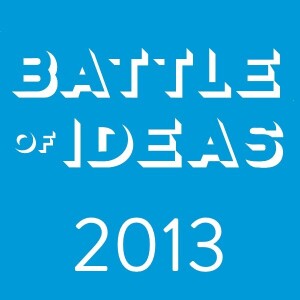
Friday May 03, 2024
Is nothing private anymore?
Recorded at the Battle of Ideas festival 2013 on Saturday 19 October at Barbican, London.
ORIGINAL INTRODUCTION
‘An Englishman’s home is his castle’ is a phrase that sounds so quaint and dated today it’s hard to remember the ideal it expressed. This was a clear sense of a private sphere into which the state and public authorities had no right to enter and the individual enjoyed autonomy. Today, that private space is increasingly subject to public scrutiny. It is now official policy that family life and child-rearing be subject to greater external intervention and scrutiny. Concerns about domestic abuse seems to justify any amount of probing into the intimacy of marital disputes, with a broader assumption that away from public view and left to their own devices, people will use the privilege of privacy to perpetrate unspeakable horrors. Those who have secrets they would rather not share are often treated with suspicion, especially if they are in positions of authority. We demand to see people’s tax bills and wage slips, to read organisation’s memos, internal company emails and financial dealings. The institutionalisation of transparency, the ubiquity of leaking, the hero-worship of whistle blowers and suspicion of any institution that does not bare all, suggests an end to any validation of privacy.
Nevertheless, in recasting privacy as the refuge of behind-the-scenes malevolence, some argue we denigrate one of the most important sites of human experience. The private sphere provides a space for self-exploration and reflection – for organisations as well as individuals – and intimate relationships certainly require privacy. The ideas, emotions and passions that are expressed to an intimate soul mate become something very different when disclosed to a public audience.
What constitutes the barrier between private and public has become ever more fuzzy. Are comments made to ‘friends’ on Facebook public pronouncements or private mutterings? Who owns the personal photos of our families, our baby bumps, ourselves behaving badly when we publish them online? And have these questions arisen only because of new technology, or has there been a deeper cultural shift? Was it better when the media turned a blind eye to the indiscretions, leaving the public to judge them as purely public figured? Is our preoccupation with the private lives of artists and celebrities a distraction from what really matters? Where does the public domain start and end? Is a culture of transparency and revelation creating a refreshingly open society or a tyranny with nowhere to hide?
SPEAKERS
David Aaronovitch
columnist, The Times; author, Voodoo Histories; chair, Index on Censorship
Professor Frank Furedi
sociologist and social commentator; author, What's Happened to the University?, Power of Reading: from Socrates to Twitter, On Tolerance and Authority: a sociological history
Andrew Keen
entrepreneur; founder, Audiocafe.com; author, Digital Vertigo: how today's online social revolution is dividing, diminishing, and disorienting us
Ursula Martinez
cult cabaret diva; writer and performer, Me, Me, Me!, Hanky Panky and My Stories, Your Emails
Christine Rosen
fellow, New America Foundation; senior editor, New Atlantis
CHAIR
Claire Fox
director, Academy of Ideas; panellist, BBC Radio 4's Moral Maze; author, I Find That Offensive
Comments (0)
To leave or reply to comments, please download free Podbean or
No Comments
To leave or reply to comments,
please download free Podbean App.